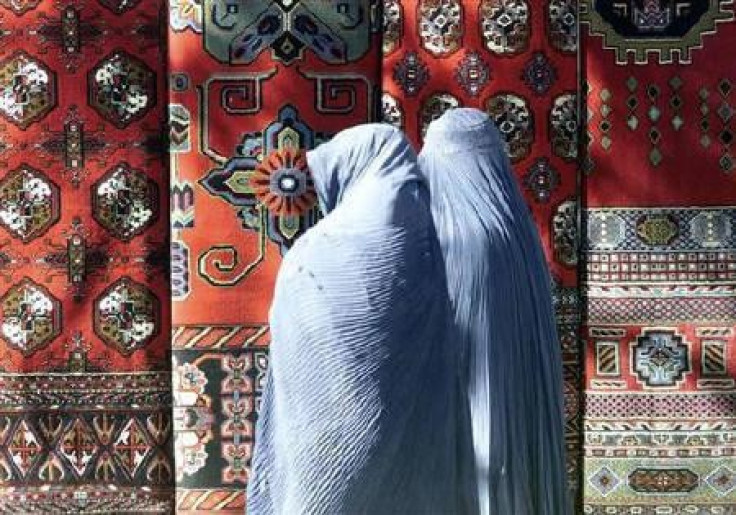Australia Burqa Ban Backlash: Countries Where Islamic Veil is Not Allowed in Public

Australia is facing a backlash after the government has proposed a burqa regulation for parliament visitors.
The burqa is a garment that covers the entire body, with a semi-transparent cloth covering the eyes, and is worn by some Muslim women while they are in public.
The regulation requires parliament visitors who wear the burqa and other face veils to sit behind glass in an enclosure separated from the rest of the public.
Following outrage by the opposition and rights activists, Prime Minister Tony Abbotts said he is ready for a U-turn on the regulation.
However, other countries in the world have implemented laws which ban the burqa and other garments that cover the face.
France
The ban on burqa was introduced in France in 2010. According to the law, people are not allowed to wear burqas and other garments that cover the face, including masks, balaclavas (cloths that cover the face with exception of the eyes), helmets and hoods in public spaces. France was the first European country to introduce the ban on the burqa.
In 2011, the then president Nicolas Sarkozy defended the law by saying it was necessary to deny shoplifters and terrorists the chance to hide their identities and facial features.
Belgium
Similar to France, Belgium introduced a law banning the burqa and any clothing that obscured a person's identity in a public place in 2012. Offenders face a fine up to 380 euros (£298) and up to seven days in jail.
Italy
There is no official law banning the burqa in Italy. However, under Italian anti-terrorist legislation, introduced during the 1970s to fight political activists, it is illegal to be in public with the face covered.
Some Italian regions have introduced bylaws that do not allow the use of the Islamic veil in public and some mayors from the anti-immigrant Northern League have also banned the use of Islamic swimsuits, which cover the entire body.
In 2010, a Muslim woman was fined €500 (£392) for wearing a burqa in Novara, a city in northern Italy.
Italian Speaking Region of Switzerland
In September 2013, people in the Italian-speaking region of Ticino, Switzerland, voted in favour of a ban on face veils in public areas by any group.
Denmark
Since 2008, judges are banned from wearing burqas and similar religious or political symbols, including crucifixes, Jewish skull caps and turbans, in courtrooms.
Syria
Syria banned the burqa in 2010. The ban was justified on grounds of security reasons, following increasing episodes of extremism among young Muslims.
In 2011 Syrian President Bashar al-Assad relaxed a law to allow teachers to wear the niqab, a veil that covers the face with the exception of the eyes.
Turkey
Turkey introduced a ban on burqa and other covering garments back in 1826.
However, in 2013 Turkey allowed women to wear the hijab — which covers the head and hair, but not the face — in state institutions, with the exception of civil service jobs and government offices.
© Copyright IBTimes 2024. All rights reserved.






